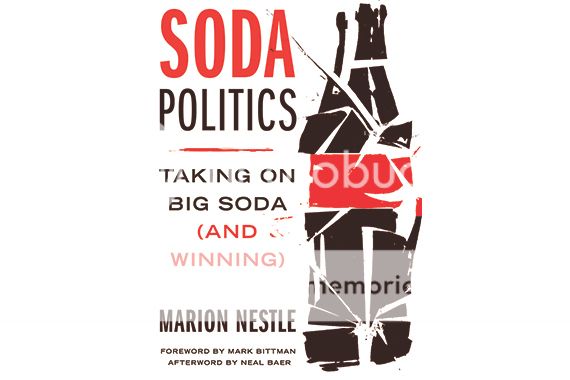Soda politics is big news these days. Sales of sodas—a.k.a. soft drinks and soda pop—have fallen in the United States for a decade, with no sign of reversal. Only the smallest sizes are selling well. Soda companies attribute these trends to the effects of health advocacy. Concerns about the health consequences of drinking sodas have convinced vast numbers of Americans to choose less sugary drinks. In response, soda companies are redoubling marketing efforts, especially in developing countries. But even in the United States, advocates still have plenty of work to do.
Researchers find overwhelming evidence that habitual soda drinkers run high risks for gaining weight, becoming obese, and developing consequences of obesity such as type 2 diabetes and heart disease. These illnesses pose problems not only for the people who have them, but also for society as a whole. The cost of obesity alone, in treatment and lost productivity, runs to hundreds of billions of dollars annually. Indeed, the first thing health professionals tell clients to do if they want to lose weight is to cut sugary drinks out of their diets. Many people have lost weight, kept it off, and reduced or eliminated symptoms of diabetes by doing nothing else besides switching to water when thirsty. Doing so, however, presents problems for soda companies. Although sodas are basically tap water and sugars, and cost hardly anything to produce, they have turned their makers—principally Coca-Cola and PepsiCo—into multi-billion-dollar corporations with global recognition, distribution, and political power.
And the companies use their political power. For years, they have dismissed concerns about the health effects of their products as trivial. Instead, they said (and continue to say) that the science linking sodas to health problems is too flawed to draw conclusions, and that obesity depends more on how active you are than it does on what you drink. They say that what you choose to drink is your decision, suggesting that individual choices have nothing to do with the billions of dollars spent on marketing. But those arguments no longer work the way they used to. More and more often, the press is exposing soda company practices that recall those used by the tobacco industry when its products come under attack by health advocates. It is becoming evident that Big Soda copies the playbook used by Big Tobacco to distract people from the harm caused by cigarette smoking. First, discredit the science, then use philanthropy and form partnerships to silence critics, lobby Congress for protection, and pour fortunes into fighting anything that might increase costs to discourage sales, such as soda taxes.

Professor Nestle just-released Soda Politics: Taking on Big Soda (and Winning).
But the public is increasingly aware that sodas are bad for health. Advocacy against them, in the United States at least, has reached a tipping point. For health advocates, sodas are "low-hanging fruit," easy targets for intervention.
Falling soda sales are the results of successful advocacy. Health advocates, with far fewer resources than soda companies, have been using their democratic rights as citizens—and time-honored methods for promoting social change—to counter soda industry marketing, lobbying, and public relations. They are out gathering public support and, occasionally, as in the successful soda tax vote in Berkeley, California, scoring clear wins.
Now is the time to build on this success and encourage everyone who cares about health—individuals, private and public groups, and government agencies—to discourage consumption of sugary drinks and other unhealthful foods. Let's advocate even more forcefully for food systems that promote consumption of foods and drinks that are healthier for people and for the planet.
This, however, means taking on greater challenges than those just posed by sodas. It means building a movement to stop food companies from marketing junk foods to kids and using their political power to influence local elections and regulations that might reduce sales of their products. In the long run, it means working with other advocacy groups to reform laws governing corporations so that they can be held accountable for social responsibility. Most of all, it means overturning decisions of the Supreme Court that allowed unlimited, and often anonymous contributions to election campaigns so that it will again become possible to elect representatives who are more concerned about public health than corporate health.
The success with sugary drinks is reason enough for courage to take on these challenges.




